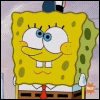
Dolce & Gabbana - Same-sex kissing? Guaranteed to draw objections. The ASA received 89 complaints about this TV ad which showed a brief kiss between two men. Complaints about its general suitability were not upheld although the regulator decided that it should not be shown around programmes aimed specifically at children.

Pot Noodle - A man meets mates in a bar, trying to conceal a large brass horn he has in his trousers. Cue numerous puns and sexual innuendo ending with the slogan: "Have you got the Pot Noodle horn?" Over 620 objectors refused to see the joke. Complainants said the ads were tasteless and offensive however the ASA decided that the commercial was fine for post-watershed broadcast.

Mazda - In these commercials, mannequins are aroused by a driving experience. The advert concludes with a voiceover saying: "The all new Mazda 5. Surprisingly stimulating". The ASA received 425 complaints from viewers who felt the ads were demeaning to women. However, the ASA said the ads humorously presented the absurd notion that an inanimate object could be turned on in the first place. The complaints were not upheld.

Crazy Frog - The ubiquitous Jamster ads drew 298 complaints in 2005 for a variety of reasons. The commercials were annoying, the frog's genitalia was visible and the adverts, which appealed directly to children, did not make it sufficiently clear that in buying a single ringtone, mobile users would be subscribing to a long-term contract. The ASA ordered that a post-9pm restriction be applied to the ads in future.

Fanta - Incurring the wrath of parents everywhere was this commercial showing a number of people drinking and then spitting out the soft drink. The ASA received 272 complaints from those concerned about the effect on children's manners. It agreed that some might copy the practice and a post-9pm restriction was applied to the adverts.














































